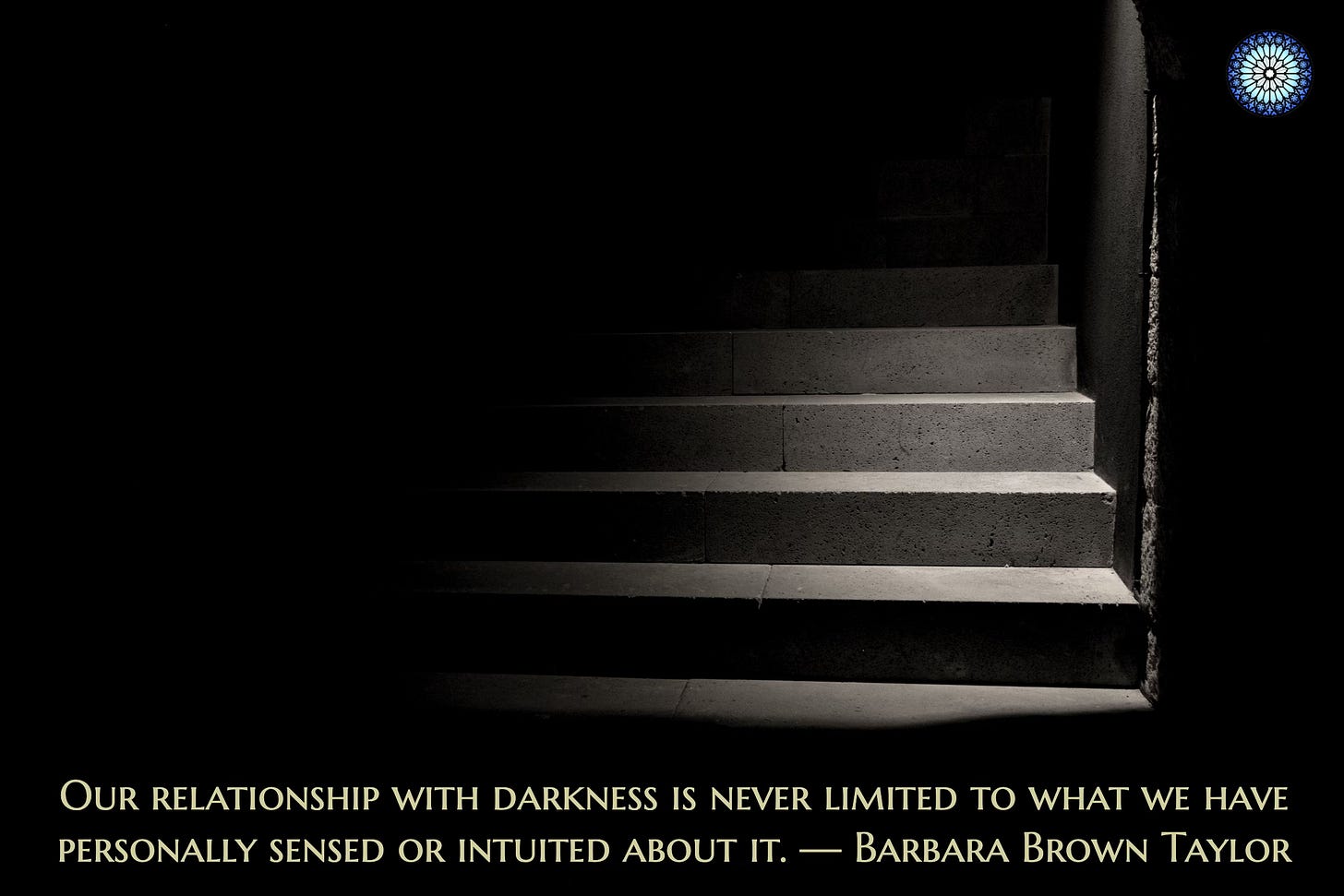Nothing is Limited By Our Experience
Silence and Darkness Meet Us in Many Ways
A child who was locked in a closet as punishment will not register darkness the same way as a child who looked forward to family camping trips. A child who grew up in an urban housing project will fear things worse than coyotes when she bolts her doors at night. As universal as darkness may be, our experience of it is local. It is also social, cultural,…




